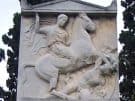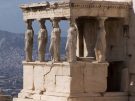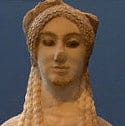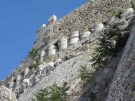Tour Intensity
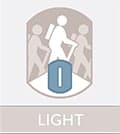
Light:
Our light tours include easy walks on mostly flat ground, often in towns or cities. Short stretches on tracks or paths may include some steps and uneven terrain. Walks are of short duration and distance, usually below 3km/2 miles or 2 hours, site tours likewise tend to be under 2 hours.
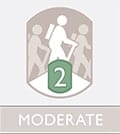
Moderate:
On moderate itineraries, key site tours can be of up to 5 hours’ duration. Walks are rarely over 2 hours in duration and 5km/3 miles in distance. Walking is mostly limited to flat terrain or towns, but some stretches may be on relatively steep slopes and narrow paths.
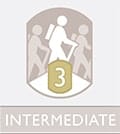
Intermediate:
Our intermediate tours include stretches of walking on narrow tracks, across rough terrain or on steep slopes. Distances rarely exceed 5km/3 miles, but some walks may last over 2 hours. On city tours, entire mornings or afternoons are spent on foot (5 hours, including breaks). Site tours last up to 5 hours.

Energetic:
On energetic tours, we cover distances up to approx. 8km/5 miles per day, including walks on rocky and rugged ground, sometimes off the beaten track, including some challenging tracks, paths requiring a good sense of balance, and long uphill or downhill stretches. Average walking/hiking duration is generally below 4 hours per day.
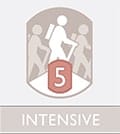
Intensive:
Our most intensive walking and hiking tours or cruises include some strenuous walks on rough ground or across rugged terrain, ascents or descents on steep slopes (mostly on pathways), narrow tracks and other challenges. The longest walks have a duration of up to 7 hours, covering maximum distances of approx. 18km/11 miles.
